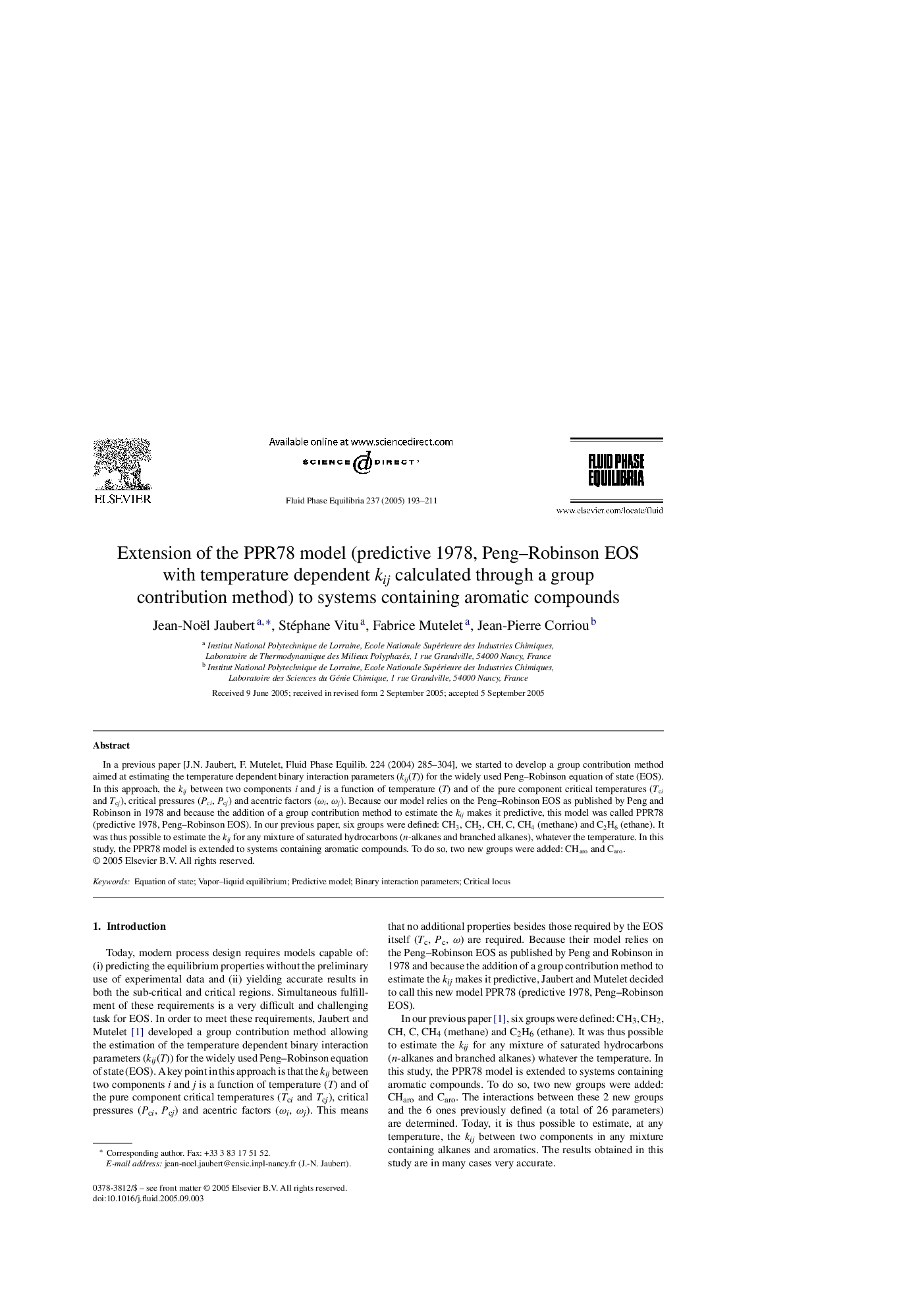| Article ID | Journal | Published Year | Pages | File Type |
|---|---|---|---|---|
| 9625908 | Fluid Phase Equilibria | 2005 | 19 Pages |
Abstract
In a previous paper [J.N. Jaubert, F. Mutelet, Fluid Phase Equilib. 224 (2004) 285-304], we started to develop a group contribution method aimed at estimating the temperature dependent binary interaction parameters (kij(T)) for the widely used Peng-Robinson equation of state (EOS). In this approach, the kij between two components i and j is a function of temperature (T) and of the pure component critical temperatures (Tci and Tcj), critical pressures (Pci, Pcj) and acentric factors (Ïi, Ïj). Because our model relies on the Peng-Robinson EOS as published by Peng and Robinson in 1978 and because the addition of a group contribution method to estimate the kij makes it predictive, this model was called PPR78 (predictive 1978, Peng-Robinson EOS). In our previous paper, six groups were defined: CH3, CH2, CH, C, CH4 (methane) and C2H6 (ethane). It was thus possible to estimate the kij for any mixture of saturated hydrocarbons (n-alkanes and branched alkanes), whatever the temperature. In this study, the PPR78 model is extended to systems containing aromatic compounds. To do so, two new groups were added: CHaro and Caro.
Keywords
Related Topics
Physical Sciences and Engineering
Chemical Engineering
Chemical Engineering (General)
Authors
Jean-Noël Jaubert, Stéphane Vitu, Fabrice Mutelet, Jean-Pierre Corriou,
